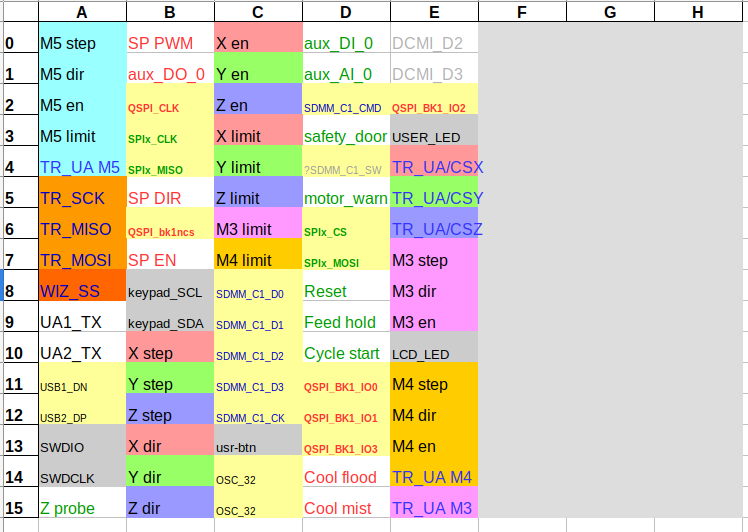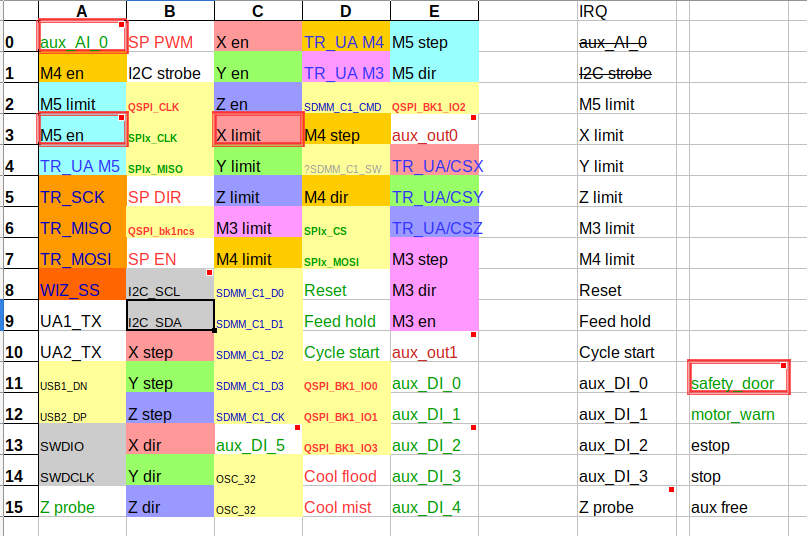update: starting dry swiming ... imported github versions to STM32cube and tried to build
unchanged config builds - so the build machine is configured +- OK
playing with my_machine.h:
#error "WeAct Mini STM32H743 supports 3 motors max."
#error Keypad plugin not supported!I'm sure, a bare breakout with several dozens of GPIO can support at leas half a dozen of axes, if we connect some driver/level shifters and a huge bread board. How to implement? How to code PIN assignment?
and regarding the keypad, I don't think I'll need it. Have headless setups in mind, with ethernet cables instead of WLAN cables... ;-) Just enabled it to keep stress on the ressource utilisation
some really needed features on my wish list:
- plasma THC
- VFD spindle control
- TMC 2200 current control ( the ones with UART interfacing) are not even available.
Those features are present in the grblHAL ecosystem. How much is the effort to integrate them here?


just found this article on aliexpress: https://www.aliexpress.com/item/1005005919904877.html which is more or less a quite bare breakout for a STM32H723ZGT6 i.e. the 144 pin variant of H7 ... loads of pins ... ...would be great to add this as an option .. i'll go to order one an try to get familiar with STM32CubeIDE
maybe, togeether with assistance from You, the the pro's, we get it to work :-)